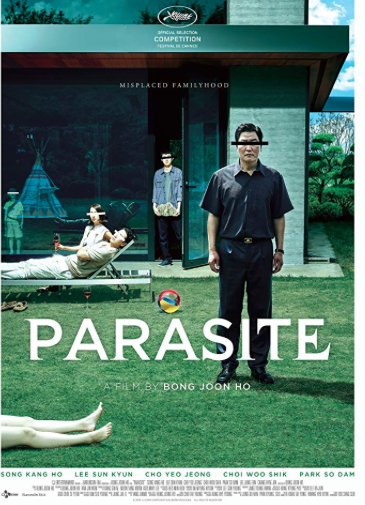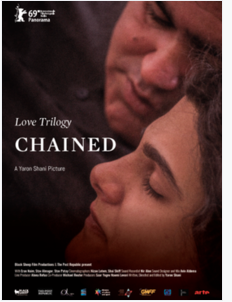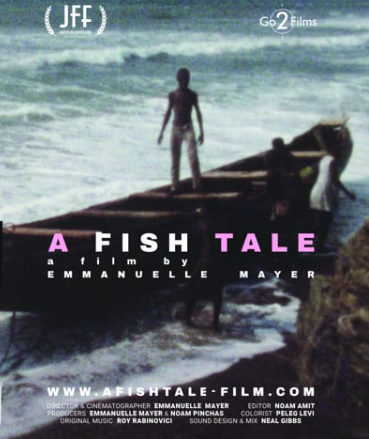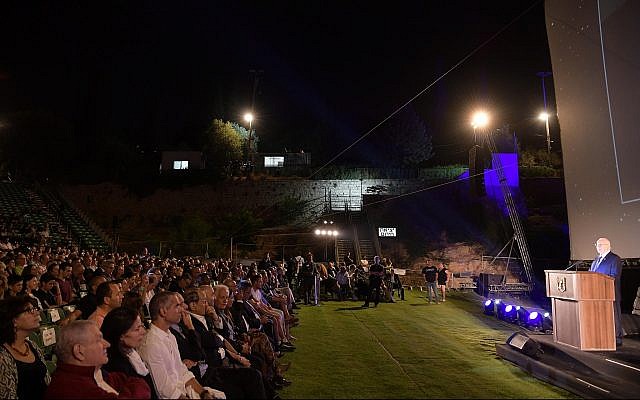Jerusalem Film Festival Highlights
Learn about a few of the bigger blockbusters from the Jerusalem Film Festival and which might make an appearance at the Atlanta Jewish Film Festival.
The 36th edition of the Jerusalem Film Festival ended earlier this month. Let’s look back at the event and some Israeli movies and documentaries that might be found at the next Atlanta Jewish Film Festival.
Since 1984, for 10 days all around Jerusalem, films are shown on the various screens of the Cinematheque and in theaters associated with this event.
It is an international festival that introduces not only Israeli works, but a selection of 150 films from all around the world, from contemporary to documentary, from full-length to short. Unlike the Cannes Film Festival, which gave Lia van Leer the idea of creating the Jerusalem Film Festival, a real freedom blooms here. Professionals rub shoulders with film lovers, as well as with the many students who were able to purchase a $30 pass.
If in the past few years we could see Quentin Tarantino with his young Israeli wife, or Jeff Goldblum graciously allowing himself to be photographed, this year international stars were not as present as in the past. We had to settle for Dr. Ruth, the famous nonagenarian sexologist who came to present the documentary that traces her life. But that didn’t matter.

It was Lior Ashkenazi, star actor in Israel, who presented the opening film at the Sultan’s Pool, outdoor gardens facing the Old City: “Parasite,” by Joon-ho Bong. The Korean movie is a major success in every country it has been released. Be prepared for the American release Oct. 11 to be amazed as well in Atlanta. In fact, Hollywood has already started planning an American remake.
The Jerusalem festival includes several awards: 1 million shekels (about $300,000) in cash prizes are awarded in various competitions. Among them: documentary films, dedicated to international documentary filmmaking; The Jewish Experience, dealing with issues of Jewish identity and history; In the Spirit of Freedom, concerned with questions of freedom and human rights; and, of course, Israeli film.
During his opening remarks, Israeli president Reuven Rivlin announced a new cinema prize named after his wife, Nechama, who died this year on her 74th birthday.
Even if we were in the holy city of Jerusalem, there is no censorship of the selected films. For instance, the Swedish film “Queen of Hearts,” (which includes very graphic sex — a woman seducing her teenage stepson), shocked a number of people, but there is no way to refuse even an X-rated film.
And here are the award winners:

Among the eight Israeli films presented, the very efficient “Chained” by Yaron Shani won the prize for best film. A bullying cop (extraordinary Eran Naim awarded for best actor) dreams of having a child with his new wife. When two teenagers accuse him of sexual harassment, he loses his job and his authority. As Shani expressed in the Berlin Film Festival, where the movie was selected, he “tried to understand what happens when a policeman loses his job, in real life, in Israel.”
A charming discovery this year, “Born in Jerusalem and Still Alive,” by Yossi Atia and David Ofek, won the prize for Best First Film. It details a young man’s attempt (Atia) to rid himself of anxiety attacks by guiding tourists in Jerusalem following the footsteps of the Palestinian suicide bombings that had occurred in the area during the years 2000 to 2005. And despite the subject, it is a romantic comedy!
“God of the Piano” by Itay Tal is a very touching movie. The best actress award went to Naama Preis (wife of the talented Israeli movie director Nadav Lapid). When she learns that her newborn child is deaf, a concert pianist uses desperate measures. We won’t say which ones. No spoilers! Not surprisingly, the music is superb.
No award, but very applauded was “The Day After I’m Gone” by Nimrod Eldar : Yoram (Menashe Noy) and his 17-year-old daughter Roni (Zohar Meidan) barely talk. He believes she has reached the “age of ungratefulness.” Yoram finds it easier to text her that dinner is ready rather than call her. Neither father nor daughter shows any willingness to break the cycle of noncommunication.

On the Israeli documentaries side, “One Hundred Percent” by Yael Kipper was awarded the prize for best documentary. The Druze populated village of Beit Jann holds the highest record of high school graduates in Israel and possibly the world. Magnificent. “A Fish Tale” by Emmanuelle Mayer, highlighting minority populations, received the best documentary in this category. Johnny lives in Israel, but dreams of returning to Africa to use the modern fish farming techniques he has learned in Israel. His wife, Thérèse, sees little hope back in Africa; she is determined to stay for her children. After their visas expire, the tensions in the couple arise.
Although it didn’t receive any award, “Lieber-man” by Nurit Kedar, the realistic portrait of the politician who arrived in Israel without a shekel and became a political leader, got major audience reaction.
We can’t wait for the Atlanta Jewish Film Festival!




comments